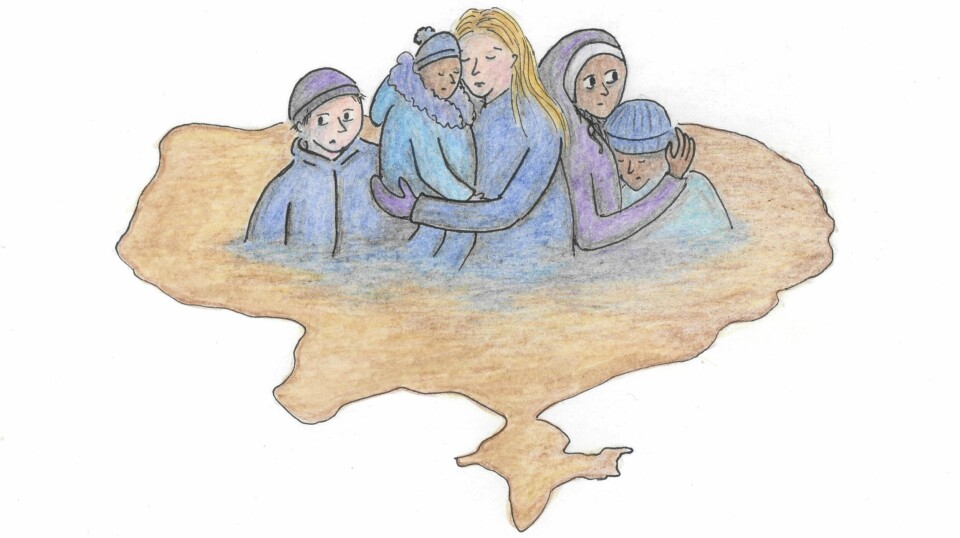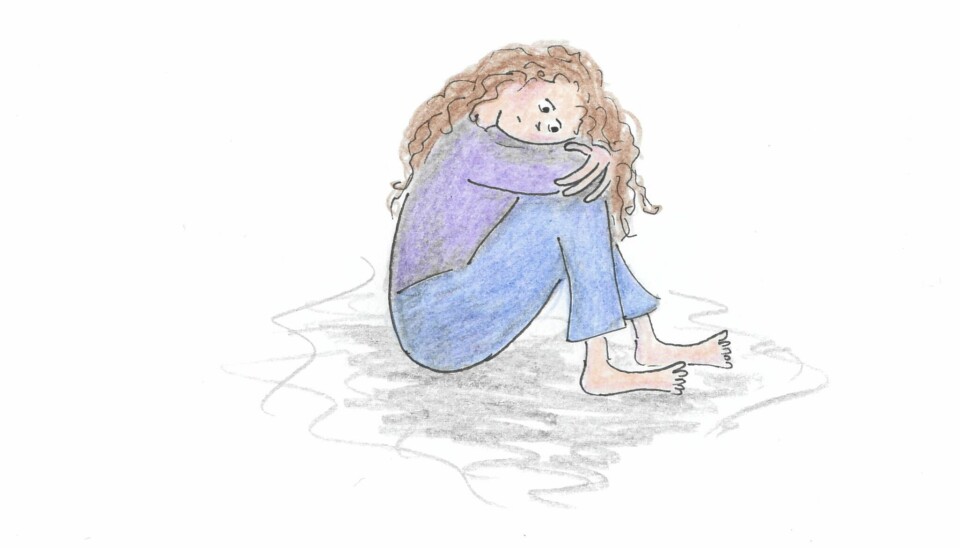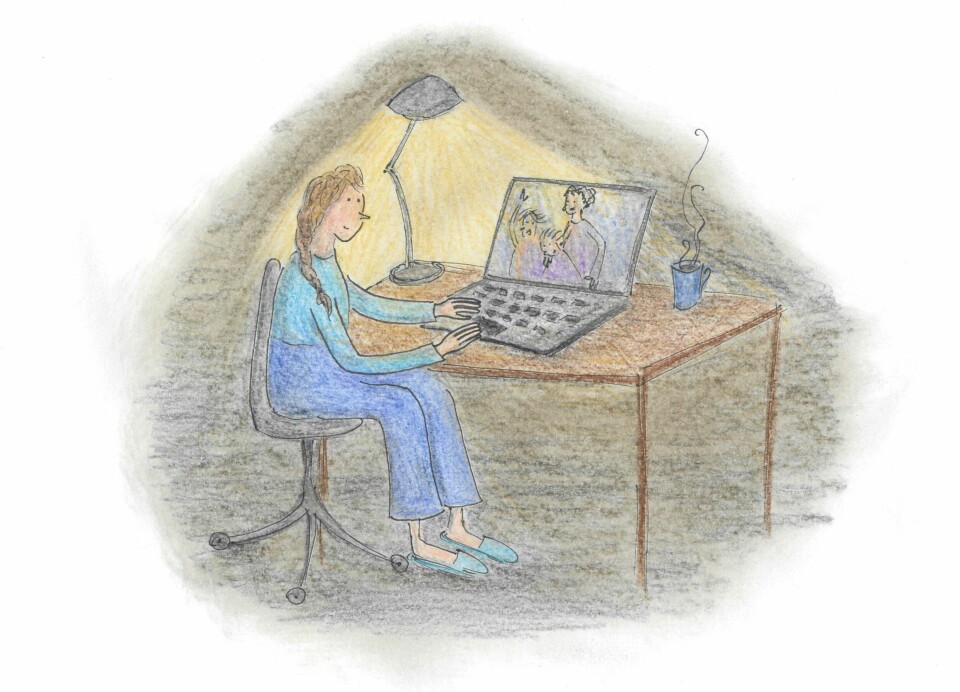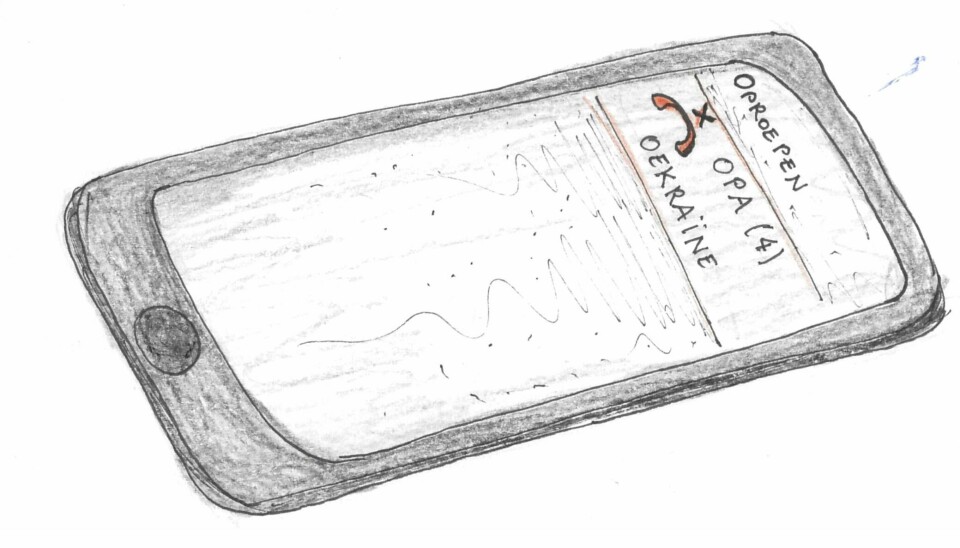TESTIMONY UKRANIAN STUDENTS IN BELGIUM
'At the end of March I've decided to stop speaking in Russian'

Ukrainian students Lily and Mariya were both in Leuven when war broke out in Ukraine. Here, too, the violent conflict dominates their daily lives. They each tell how they experienced the past war year from a distance. 'It sucks, but I feel like I've woken up from slumber.'
February
After following the news for a long time, and a couple of days before Russia invaded Ukraine, Ukrainian student Lily contacted some of her friends in Ukraine. Lily studies a master in electronics and ICT in Leuven and asked her friends if they didn't have to leave the country. 'We still considered it impossible that a real war would start, but nevertheless the situation looked bad.' Her friends thought they were safe. On the 24th, however, Lily woke up to terrible news. 'I called my brother - it was his birthday - and he was angry that I had woken him up. Haven't you seen the news?' She started reading the news online and saw everywhere that Russia had invaded Ukraine.
Still, she believed it to be a joke until she called her mother. 'People were buying everything in shops, petrol stations were empty and everybody was panicking. That's when I realised it was serious: if people in such a small city, and even my mum, were panicking, it had to be very bad. Still a part of me did not want to believe it. My mind just went no, no, no no, no ,no.' Lily made breakfast and started crying. She was unable to stop.
'On the 24th of february, I thought it was over'
Mariya, student philosophy
Not far away, in a student house in Leuven, Mariya woke up to a lot of messages and missed calls from friends. Mariya studies philosophy and had just started her last semester of her bachelor's degree. 'I immediately called my parents', she recalls. In the South of Ukraine, her father was driving from another city to my hometown. . 'I don't remember much more of that day, just that I felt horrible. I had known war would come at some point, especially considering russian federation starting wars in Chechnya and Georgia, but I had not expected it so soon.' Later, she was surprised by the international support. 'On the 24th of february, I thought it was over. We're fucked, I thought. So I was surprised by the support and the immigration and refugee policy of the EU.'

Long before the war had started, Lily had planned to go to Poland on the 25th and meet her brother and mum there to celebrate both her and her brother's birthday. 'I begged my mum to leave the 24th already and my stepfather drove her to the border. There were already such long lines, so they parked the car far away and continued on foot to the border. Since it was impossible to cross the border on foot, they searched for a car that would help my mum cross the border.' And they found a small car, full of people and a cat in a box, that would help her mum cross the border, since it was not allowed to cross it on foot. They spent the night in the car and were able to cross the border on Friday the 25th at five in the morning. 'That Friday, we joined her in Poland.'
'I started feeling guilty that I was in a safe place'
Lily, student electronics and ICT
In Leuven, Mariya received an email from her faculty, asking if she wanted to try a free therapy session. 'I was crying in my study counsellor office and she redirected me. But the session was awful, and I didn't have the courage to make a second appointment.' In Poland, Lily just kept on reading the news. 'We were all just sitting inside, discussing news we had heard from different channels.' Still, it felt unbelievable that a war had broken out in her home country: she kept hoping that everything would be fine when she woke up. 'And I started feeling guilty that I was in a safe place.'
March
On the first of March, Lily returned to Leuven. 'It was very hard to see all these people living their normal lives, that for these people nothing had changed.' She attended her mandatory classes, but still her thoughts were with Ukraine. 'I did not really care about my exams at that moment.'
Mariya begged her parents to leave their homes, but was also unable to neglect her university work. 'I had to write my bachelorpaper and study well enough to get my degree. I wasn't sure at the moment that the temporary protection of Ukranians in Belgium would apply to me and I would not be able to meet the financial requirements to renew my student Visa.' So she showed up in class, but life felt automated. Both of them don't remember much of the first months of the war. Lily: 'I went to some classes, but I can't remember what else I did.'
'In a lot of ways, I was being a mum for my mum. That was hard'
Mariya, student philosophy
Then, Mariya's mum finally arrived in Leuven. It was difficult seeing her like that: disoriented, not understanding the language and not knowing where she was or what to do.' Her mother has a limited knowledge of English, so Mariya accompanied her to the city hall. She stayed in my kot with me for three weeks: It was a big hustle to get all the documents in order. In a lot of ways, I was being a mum for my mum. That was hard.'
Mariya started reading a lot of Ukrainian literature around that time, 'as a source of comfort, I guess'. At the end of the month she woke up and decided to not speak Russian anymore. 'It had been on my mind for a long time, but I suddenly decided to do it. My parents switched to Ukrainian as well, although it's hard for my father since he never learned Ukranian in school.' So now Mariya only speaks Russian to friends who don't understand Ukrainian and with whom it would be awkward to start speaking English.
'It was a very therapeutic experience: within a few weeks I could see the impact on my thinking as well. Since the war; Mariya has lost some Russian friends: 'I blocked three of them as they did not inquire into how I or my family were doing. One of them had always had questionable political views, but I had decided to ignore it before.' When meeting new Russian people, Mariya now talks in English: 'At the moment I don't feel comfortable speaking Russian anymore.'
March was also the month in which Students for Ukraine was founded in Leuven. Marta, Valentina and Stefan helped organise small gatherings, together with many other international students. Most days of the week volunteers sat in Pangaea to collect donations. 'Those actions were very successful', Marta explains, 'we got a lot of support.'
April
April came, and with that came Easter. 'My mum made some Easter bread, but aside from that we did not celebrate at all', Lily recalls. 'We just called friends and family to ask whether they were okay.' For Lily, it had become one of those moments she lived towards, hoping that the war would be over by then. 'In the beginning you hoped it would be over within a few weeks, then I hoped it would be over before Easter. Obviously, it wasn't.'
In April, Mariya's father came to Belgium. 'He was in Chornomorsk and had been volunteering with supplies and molotov cocktails. Then he wanted to enlist in the army, but they rejected him since they had many young volunteers and he was over sixty.' There were a lot of attacks on the region he resided in and after a missile had struck very close to his house, Mariya urged him to leave the country. 'When he arrived, it all went a bit easier than with my mum since she could also help him.' They stayed in a residence for refugees for a while after which a friend introduced them to a Belgian man who rented out a part of his artistic residence. 'I don't know how they even communicate with each other, but his family almost adopted my parents.'
'At a certain point, a friend and I were just sending each other cat pictures'
Lily, student electronics and ICT
During this time the initiatives for Students for Ukraine expanded from collecting donations to fundraising. 'We chose the organisation Voices of Children, an organisation which offers psychological support for children, and since the war also for families', Marta explains.
May & June
Still, Lily and Mariya don't remember much of these months. 'After Easter, I hoped the war would be over before Victory Day (the 9th of may, when Ukraine celebrates the victory of the Second World War, red.), but once again this did not happen.' During the 'blok' Lily started to catch up with her studies. Somehow, both Lila and Mariya managed to pass their exams. 'Unexpectedly, I got really good grades', Mariya recalls.
July & August
During the summer Mariya went on a vacation with her boyfriend. In addition to her studies and her regular job, she had been working at the residence during the second semester. 'I was really overwhelmed, so the vacation really did me good. I decided to stop working at the residence afterwards, since it also made me feel depressed at times.'
For Lily, August might have been the hardest month of the year. 'I fell into a depression: I did not go outside and did not talk to anyone. I was just lying in my bed, sometimes crying, sometimes just staring. I dreamt about people coming home and woke up crying, realising this was impossible.' Lily's cousin only has contact with her husband through the phone. Everyday she waits for this call, and Lily fears with her. 'I can't imagine how she lives like this.'

It also became increasingly difficult for her to text her family and friends. 'It's ridiculous to ask how they are doing, cause of course they are bad. They are literally in war. At a certain point, a friend and I were just sending each other cat pictures. Occasionally, then, I would ask how she was doing.' The war does not only disrupt possible Ukrainian-Russian friendships, but also complicates Ukrainian friendships. 'I also don't know what I can tell them', Lily admits. 'I feel guilty all the time. If you look at my life from a distance, nothing has changed: I'm studying at the same university, my husband is still working, we still have the same salary, we go to the same supermarkets. And yet in a way everything changed for me: I'm constantly worried.'
September
At the start of the new academic year Lily realised she needed to focus on something specific. So I took on extra classes and other engagements: I made sure I did not have time to think about anything else.' Late in the evening, Lily started baking cookies for Students for Ukraine and helped collect donations. 'My friends didn't understand where I found the time for all these projects, but I know I would have crashed if I hadn't done this. Initially I had not expected that the situation would affect me this hard. It is still very difficult.'
'Who knows what would have happened if Ukraine hadn't bordered the EU?'
Mariya, student philosophy
Mariya started her masters and for her personally things have started to get better. 'What impacts me the most is comparing my country's situation to other bigger wars elsewhere. In this way I feel very privileged, and I feel like a lot of Ukranians do.' In that sense, she jokes, Ukraine is very lucky to border the EU. 'If it didn't, who knows what would have happened?' Connecting with other Ukrainians in Belgium has also helped her. 'I met one of my friends at the city hall: I was waiting for an appointment for my mother, he had an appointment with his father. I am not alone, and that feels good.'
October & November
In the beginning of October, Students for Ukraine organised a charity concert. 'We talked about it during the summer', Marta explains, 'and collaborated with a lot of other volunteers.' Valentina recalls that she and Marta had talked about nothing else the month before, but that it was an extremely rewarding experience. 'A lot of Ukrainian people attended and we were able to raise over €1.000.'
After about half a year of war, Mariya discovered she found it easier to talk to strangers again. 'At the start I could get so angry about the way people talked about the war. Now I'm glad I'm not a lion anymore who jumps on people for saying one wrong word.'
December
For the very first time, Mariya has celebrated Christmas on the 25th of december. Her parents were there, and their Belgian friend and Ukranian friends. 'It was very nice', Mariya recalls. On New Year's Eve Lily had dinner with her husband and mum. But they didn't have a big celebration: 'It would not feel right, while people in Ukraine are suffering.'
January & February
Almost one year after the war, Lily's mum still feverishly follows the news. 'And it's bad for her, it really makes her sad.' Through following the news, she recently discovered that a guy Lily had grown up with, had been buried. 'I couldn't believe it. She asked me whether I remember him, and of course I do. We grew up together, we played in the streets together.' That evening after hearing the news, Lily cried again. 'It is so difficult, every time again, when you hear about someone dying. I honestly don't understand how people in Ukraine handle this situation. Every day my cousin wonders whether her husband is going to call her: she is just waiting for a call. I cannot imagine living like that.'
'I know what I stand for and I don't want to waste my time'
Mariya, student philosophy
Mariya is not surprised that, one year later, the war is still ongoing. 'In February last year, some government official told us the war would last a couple of weeks, but I didn't believe it. Wars last for years and I don't believe it will end soon.' One year after her first failed therapy session, she will start individual therapy. With the new year, Mariya decided to go: the intake session is already behind her.
'After all, I believe this situation impacted me in a twofold way', Mariya concludes, 'It absolutely sucks, but it has also given me confidence. Once you have an existential threat to your life or the life of your parents and community, you feel like you wake up from slumber. I know what I stand for and I don't want to waste my time.'
Lily adds: 'While I’m living in another country permanently, the situation in my home country remains close to my heart. I hope that one day I will have the opportunity to visit my home county, my family and friends in peace.'










